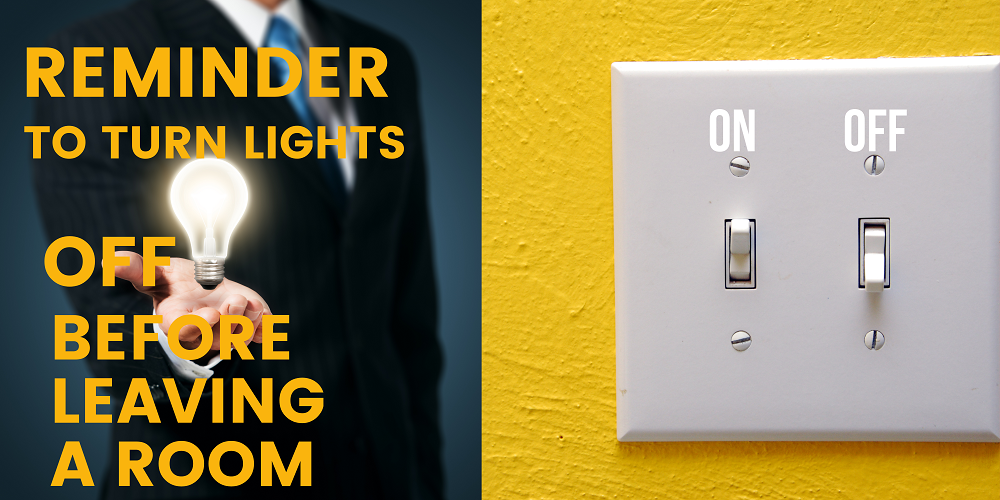
Turning off lights when you leave a room may seem like a small action, but it can have a big impact on both your energy bills and the environment. In this article, we will explore some of the benefits of turning off lights and some tips for making it a habit
The first benefit of turning off lights when you leave a room is a reduction in energy costs. Leaving lights on in unoccupied rooms can add up over time and result in higher energy bills. By turning off lights when you leave a room, you can save money and reduce your carbon footprint.

Another benefit of turning off lights is reducing light pollution. Light pollution occurs when artificial light spills into the environment, disrupting natural cycles and affecting wildlife. By turning off lights when they are not needed, we can reduce light pollution and promote a healthier environment.

So how can you make turning off lights a habit? One strategy is to place reminder notes around your house, reminding you to turn off lights when you leave a room. You can also create a routine by making turning off lights part of your leaving routine when you exit a room.

Another strategy is to install motion sensors that turn off lights automatically when no one is in the room. This can be particularly useful in rooms where people may forget to turn off the lights, like bathrooms and closets.


Finally, another way to reduce energy costs and promote sustainability is to use energy-efficient light bulbs like LED bulbs. These bulbs use less energy and last longer than traditional incandescent bulbs, which can save you money and reduce your carbon footprint.

Turning off lights when you leave a room may seem like a small action, but it can have a big impact on both your energy bills and the environment. By creating reminders, installing motion sensors, and using energy-efficient light bulbs, you can make turning off lights a habit and contribute to a more sustainable future.
